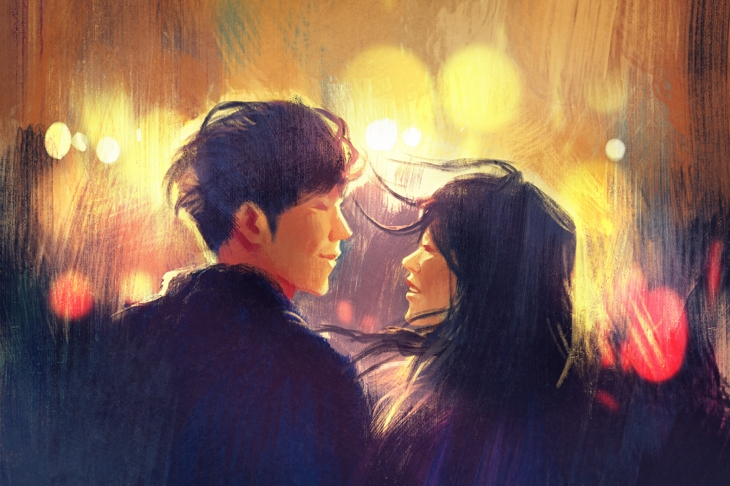‘The most interesting novels are a bit strange,’ Kirsty Gunn once told readers of the London Review of Books. ‘They reject the predictable progress of conventional plotlines in favour of something that feels more risky.’ It’s surprising then that Gunn’s latest novel-ish offering is about unrequited love — a middle-aged banker for his glamorous landlady — set in the moneyed comfort of London’s Richmond. It’s a storyline so conventional, so timid, chick-lit would be embarrassed to claim it.
Evan Gordonston falls — at first sight, of course — for Caroline Beresford, familiar in PR and pony club circles, but who now spends her days mostly avoiding her husband, practising pilates, drinking cocktails and popping Ativan. In short, she’s ripe for Evan’s advances. He thought about penning this ‘great love story’ himself, but instead ropes in his childhood friend, Emily, to compose his feelings into a novel. She has the perspective to ‘get a bit of objective correlative, a bit of distance’.
And Emily actually knows something about writing. An English literature graduate, she harbours a bruised ambition to publish something significant and popular. As it happens, she’s also unlucky in love, pushing 40, a freelance literary critic and temp copywriter for dog food advertisements. Still, she devotes the best part of a year to Evan’s project, sifting through manila envelopes of his florid diary entries, and meeting up in dingy pubs across the capital to offer him sympathy over countless gin & tonics.
But her plot misses pith. When Caroline finally arrives upset and tipsy at Evan’s garret door, he fails to ‘resolve it: hamartia, hubris, catharsis, all that’. Emily might wonder whether Caroline even exists. And as Emily and Evan spend long evenings together, their collaborative notes and glances spark a counter-love story.
It’s a book about flirting — between narrator and protagonist, but also with narrative convention. Gunn creates a self-conscious apparatus for commenting on the writing process. The flatness of the characters, the limp happenings, are somehow part of the point. Superimposed on Emily’s meandering voice, there’s an editor who chitchats in the footnotes and is responsible for the ‘Arrangement of the novel with an Introduction and Some Further Material’. This may seem a little strange if you’re more at home with Victorian realism, but it’s not exactly new.
Emily is inspired by Dante and Beatrice, Petrarch and Laura, as well as Renaissance traditions; but Caroline’s Bikini seems also indebted to an odd, less-celebrated predecessor of the novel. George Gascoigne’s Adventures of Master F.J., from 1523, is about a man’s infatuation for his hostess, and also has an unreliable narrator, a multitude of authorial voices, eclectic source material and genre-bending intertextuality. Both Gascoigne and Gunn, in their very different literary moments, try to open up what prose fiction might go on to be. But strangeness is not always interesting.






Comments